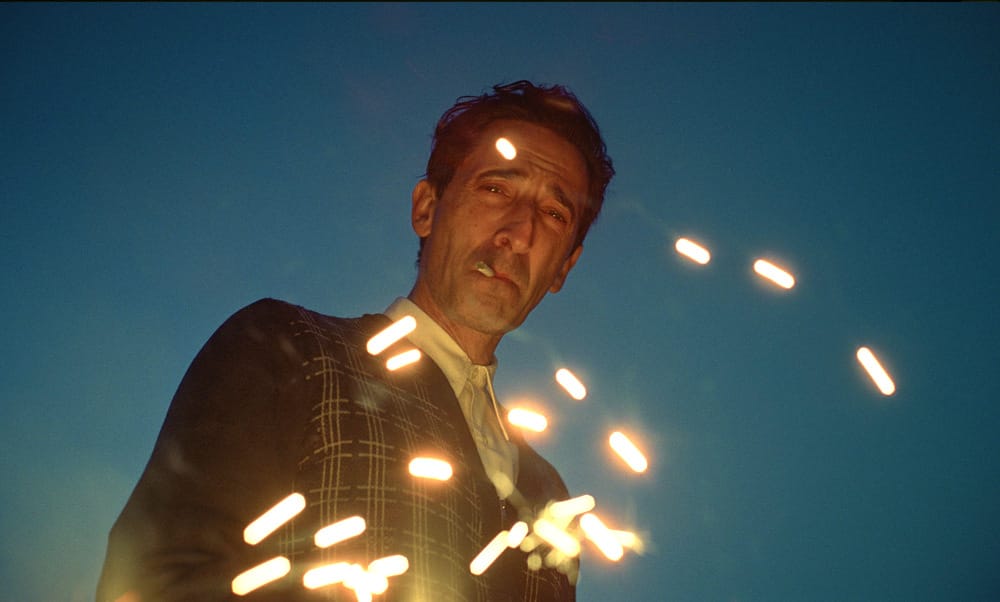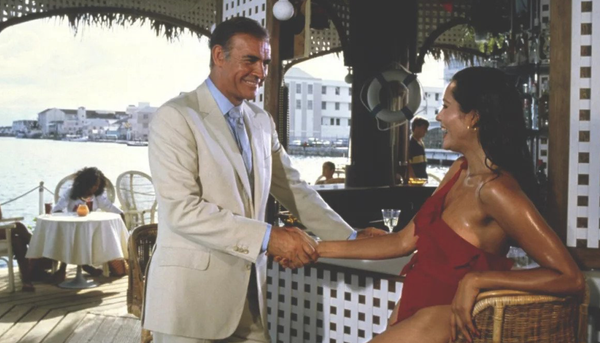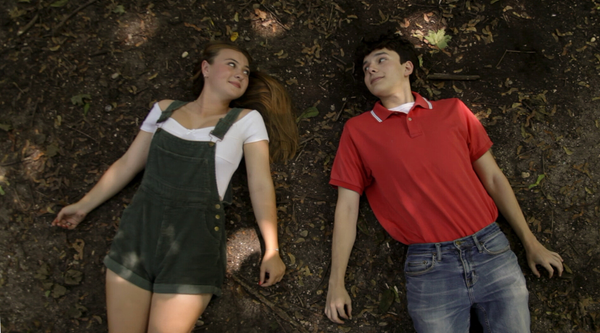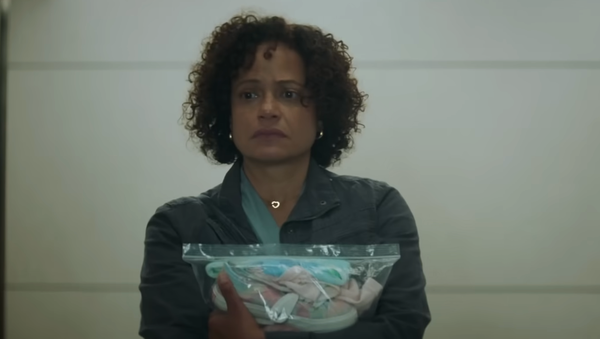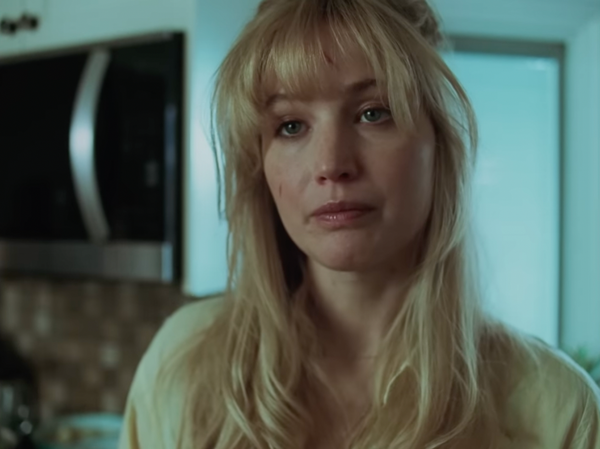June Butler examines the raw concrete of The Brutalist
Made with the relatively low budget of $9.6 million, The Brutalist recounts the story of László Tóth (Adrien Brody), a Hungarian Jew, Bauhaus architect, and Holocaust survivor of Buchenwald, who, amidst the utter chaos and collapsed infrastructure of Europe post-World War II, makes his way across land and sea to finally arrive in America, the land of the free. He has been forced to emigrate for economic reasons, leaving behind wife Erzsébet (Felicity Jones), and Zsófia (Raffey Cassidy), his orphaned teenage niece who is suffering from post-traumatic stress disorder, having endured the horrors of Dachau.
Opening scenes of the film are fast-paced, with Tóth travelling by train and ship. People are crammed into railway carriages, much like the souls who were transported to the concentration camps, packed in so tightly that for days on end no one was able to lie down or sleep. People died along the route to the death camps and those who remained alive were forced to stand beside the decaying bodies of their relatives and friends. László’s journey mirrors the deprivations of that terrible time. From afar, Tóth sees the Statue of Liberty, welcoming immigrants to the United States. Despite his elation, László is aware that tough times lie ahead. He initially struggles to find a place to stay but finally locates his cousin, Attila Miller (Alessandro Nivola), who has fully assimilated into American culture, changed his surname, and converted to Catholicism to marry his Catholic wife Audrey (Emma Laird). Attila owns a furniture shop. Tóth moves into a dingy side room in the shop and starts to work there.
One day Harry Lee Van Buren (Joe Alwyn) comes to the shop and, upon discovering that László is an architect from the world-renowned Bauhaus school of design (based in Weimar, Germany from 1919 to 1933), commissions Tóth to reimagine a library at the family mansion as a surprise for his father, multi-millionaire Harrison Lee Van Buren (Guy Pearce), who is away on business. Tóth warily agrees but maintains it will be styled strictly on his terms. He attends the Van Buren home and creates a most masterful piece: a beautiful, panelled library with multiple wooden doors pivoting open on a centred column to display a shrine to the written word.
Harrison Van Buren returns from his business trip and is visibly enraged at the changes made to the room. He refuses to pay but later changes his mind and visits Tóth to both give him his fee and ask him to design a magnificent house, one that Harrison Van Buren feels reflects his superior status and will be a legacy to his memory (and wealth). From this point, the story centres on two characters (although supporting actors provide depth to the narrative): Tóth and Harrison Van Buren. Van Buren senior is pathologically envious of Tóth’s creative genius, forcing the architect to indenture himself to Van Buren’s money. There are multiple scenes where Harrison covertly undermines Tóth, either by mocking Tóth’s English accent or by ensuring Tóth knows Van Buren is the only person standing between him and penury.
It is evident that the house Van Buren asks László to build is a metaphor for Tóth himself. The vaulted halls, secluded passageways, and hallowed places of worship are a reflection of Tóth’s inner turmoil as he endeavours to chase the demons that lurk and creep. If I had to sum up the story in a sentence, I would have to say it is the legend of Goethe’s Faust – Faust the necromancer who sold his soul to the devil, aka Mephistopheles, in return for limitless knowledge and pleasure. That Tóth is Faust and Harrison Van Buren the epitome of Mephistopheles is clear from the onset. Van Buren desires Tóth’s soul. He wants to take on the form of Tóth, he wants to become him. Harrison craves Tóth’s genius, his artistic creativity above everything else, and jealousy soon takes hold, pushing Tóth to his limits and beyond.
Tóth initially takes the deal but soon learns that it is literally a pact with the devil and begins to push back against Van Buren’s limitless, stifling, draconian demands. The Brutalist is a film of contrasts between the chaos of Europe as it lay in ruins, and capitalist America, moving forward at speed through a system of mores – bigger, greater, better, wealthier. It is temptation laid bare. Tóth is continually faced with honourable impulses: should he cast off ethical constructs, becoming a subdued, quasi-creative hireling, where his artistic acumen is negated and bent to the whims of another, or stand proud, refusing to cede despite overwhelming evidence that suggests defeat and abnegation is the only way to survive? Into the melting pot of Europe post-WWII came a slew of immeasurable skill sets, artists and creators who realised that following a dream sometimes forced internal ambitions to wither and die as parts of a human soul, the essence of being, dissipated into the ether of nothingness. For Tóth, the struggle is real.
As Harrison Van Buren’s money causes him to bow his head in submission, he becomes increasingly more frustrated by his impotence and starts to form more robust aphorisms to maintain peace of mind. After the degradation of millions of Jews, subjected to dehumanisation and poverty, embracing a culture where money is the new goal lies contrary to László’s values. It is this dichotomy of good versus evil, greed set against compassion, that lies at the core of the film and propels the narrative.
Adrian Brody as László Tóth is the critical force behind The Brutalist. Every scene Brody is in lights up around him, and he alone infuses the story with energy and drive. It is a great script, but it suddenly becomes luminous, compelling, charged with emotion not easily forgotten once Brody enters the fray. I have some reservations about how able the remaining cast were in meeting Brody’s mesmerising performance and must conclude that while Brody is no scene-stealer, he outshone them all without even trying. I wished Guy Pearce’s character was able to take more of a central role and not just leave the all-singing, all-dancing show to Brody. Pearce is an astounding actor, but he could have been given greater freedom to stoop to the lows I felt he was capable of as Harrison Van Buren. I wanted to see Pearce become more Mephistophelian, slyer, with greater aspects of sadism, elements that lie firmly in the narcissist’s toolbox. I thought Pearce should have been given a freer rein.
Felicity Jones as Erzsébet, while absent for much of the film, makes her appearance with aplomb and verve. Jones, as a measured and astute counterbalance to the nearly manic activities of Brody, was well cast in her role.
There were some small plot holes but, given the length of the film, audiences would have needed more than the triumvirate of Tóth, Erzsébet, and Van Buren to maintain full engagement, and the auxiliary elements of the story gave the movie more substance and depth. The plot holes could be better compared to the insertion of a MacGuffin than an actual gap in the storytelling.
Given its budget, The Brutalist is simply astounding from beginning to end. A film of this length needs to occupy and keep viewers’ attention – in this, Brady Corbet has succeeded.
The Brutalist is available to stream online now.

